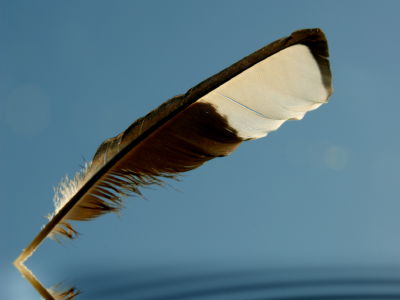Fossils reveal that male mosquitoes once sucked blood too

It is known that mosquitoes suck the blood of humans and animals not for food, but for females to obtain energy and develop their ovaries during egg-laying season. Therefore, it is common knowledge that only female mosquitoes suck blood. However, analysis of an old mosquito fossil discovered in Lebanon revealed that male mosquitoes may have once sucked blood as well.
The earliest fossil mosquito: Current Biology

The most famous fossil mosquito suggests that males were bloodsuckers too
https://phys.org/news/2023-12-earliest-known-fossil-mosquito-males-bloodsuckers.html
Danny Azar of the Institute of Geology and Paleontology of China and Lebanese University published the results of his analysis of amber found in Lebanon, thought to be from the Early Cretaceous period, in the journal Current Biology. The amber contained a male mosquito in good condition.
When the mosquito fossils in the amber were examined, it was found that both male mosquitoes had mouthparts for biting and sucking blood, a feature that only female mosquitoes have today. Normally, male mosquitoes have degenerated mouthparts that allow them to suck more nectar from flowers rather than blood. 'Lebanon amber is the oldest amber with many biological inclusions, and its formation coincides with the appearance of flowering plants. Therefore, this amber is very important as evidence of the co-evolution of pollinators and flowering plants,' said Azar.

The research team reported that this discovery 'extends the time of the clear emergence of mosquitoes to the Early Cretaceous period. ' They also suggested that the evolution of blood-sucking may be more complicated than previously thought, given the possibility that blood-sucking male mosquitoes existed in ancient times.
The researchers also note that the discovery that Cretaceous mosquitoes had blood-sucking mouthparts in males helps fill in the gaps of mosquito ' ghost lineages ' - species that are theoretically assumed to have existed but for which there is no direct evidence in the fossil or genetic record. Insect blood-sucking is thought to be an evolved ability from piercing and sucking mouthparts to extract plant fluids, but gaps in the insect fossil record have made it difficult to study the evolution of blood-sucking. The discovery from Lebanese amber is expected to contribute to the development of various research projects.
André Nel of the National Museum of Natural History in Paris said, 'Molecular dating has shown that mosquitoes appeared in the Jurassic Period, but the oldest record to date is from the mid-Cretaceous Period. The Lebanese amber is from the Early Cretaceous Period, 30 million years older than previous finds, so we know that mosquitoes were born much earlier.' In response to this discovery, Nel said he would like to tackle the following research topics in the future: why males that do not lay eggs engaged in blood-sucking behavior, and why blood-sucking mouthparts disappeared over time.
Related Posts:







